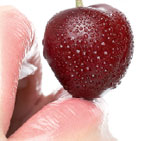It’s a new year, but if you’re feeling more ‘verlep’ than fabulous,it could be because your body is awash
with toxins that are sapping your energy. Depending on who you talk to, any number of things contribute towards toxic
overload. High up on the list of baddies are alcohol, smoking, fried and rich foods,food additives and preservatives, drugs,pesticide residues and pollution.
There is a way to stem the toxic tide, a way that has proven popular with many people: a good detox. Certainly, homeopathic pharmacist Ian Wheeler from Steps to Health Pharmacy in Cape Town thinks detoxing is important for maintaining good health, but he also believes you should consult your doctor or homeopath before embarking on any
sort of diet, detox or fast.
‘Most people don’t eat food that is suited to them and
this is where the problems begin,’ he said.
‘Ideally, you should eat food that is compatible
with your blood type. If you don’t, your body won’t be able to digest it properly, leading to poor metabolism
and a build-up of acidity.’
Wheeler says that detoxing need not be a complicated business. His advice is that you start out by watching what you eat: cut out white bread, cakes, sweets, fizzy drinks, dairy products, yellow cheese and oranges, and up your intake of salads and raw and steamed vegetables.
‘We recommend that you eat the veggies at night to make digestion easier at a time when your metabolism is slowing down. You also need to drink between one to two litres of water each day.’ said Wheeler.
Then there is adrenaline, which many of us don’t realise can be toxic to our systems. Wheeler says he sees more and more people with adrenal overload caused by stress. Symptoms include palpitations,sweating, dizziness, irritability, inability to focus, nausea and fatigue.
But although almost everyone is doing it, or thinking of doing it, Professor Thandi Puoane from the School of Public
Health at the University of the Western Cape (UWC) is highly sceptical of the benefi ts of detoxing.
‘People need to make healthy choices about what they eat every day, not just for a few weeks every year,’ she comments.
She’s right, of course. But for some of us, a detox is a good way to kick-start both a sluggish metabolism and that
sluggish willpower. In other words, it is a good way into a more generalised, healthier, way of eating.
If you’re not up for a radical detox but want to give your body a healthy boost, you don’t have to tackle all gremlins at once – you can make gradual changes and still reap the benefits.
Karen Protheroe, registered dietician and well-known author of The Lean Aubergine (Struik) and Skinny Snacks (Struik), believes that: ‘Although not scientifically proven, detox diets have been known to help restore the digestive system and boost energy levels. Sometimes, though,’she adds, ‘you need to make more of a mental detox to get you started on a healthy lifestyle. Making a few drastic changes to your diet initially can help to motivate you to continue, as you’ll feel more in control of your lifestyle and eating habits.’
Because a lifetime of extremely restricted eating is very hard to maintain, Protheroe recommends that you do the
following to stay healthy: Drink more water, steer clear of sugar. Cut out caffeine and alcohol and watch which fats you eat and choose plant fats over animal fats. The only real plant fats to avoid are coconut oil and milk.
Eat more fresh fruit and raw vegetables. Smoothies, stir-fries and salads should become daily standards
Pick your proteins carefully, opting for fish and the white meat of chicken. While you’re banishing the baddies, don’t forget to up your intake of the following:
Soya and legumes, including soya milk and tofu. Nuts and seeds, avocado pear, olives and carbohydrate vegetables such as potatoes, butternut, pumpkin, carrots, peas and beetroot are also good. And don’t forget as much raw food as possible and oats.
Go for it – you have nothing to lose but
your lethargy!

